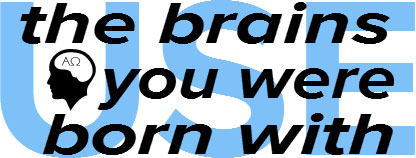a tremendous waste of time how can so many be so stupid while believing they are SO smart?
How stupid are they? They are so blinded by their own ego, their own self-worth that they are completely oblivious to how they are nothing but tools. Deluding themselves with the belief they are helping children they do nothing but stroke themselves with self-congratulatory praise all the while being groomed by their masters to destroy civil society by believing they are saving it. The absence of critical thinking is condemning. By dividing society into groups, be they racial, ethnic, economic, or gender and blaming other groups for whatever the perceived failings of that group are these geniuses are unable to see they are not only causing but exacerbating the very “problem” they are supposedly solving.
I don’t doubt some of these folks are well meaning but it is the inability to see their puppet strings that condemns the entire bunch. Truth be told, as a group, teachers, on any level, are not the brightest society has to offer. At one time this was not the case, at one time teachers, at least elementary school teachers, were the brightest WOMEN society had to offer. They were women who had a burning desire to teach while also being mothers, a double bonus for those in their classrooms.
Alas, I have drifted off into stream of consciousness and will leave that for another day but for those who wish to know when public education really started to lead to the downfall of America it was when women teachers stopped wearing bras and men teachers started wearing them.
The article speaks for itself. The conference described below is nothing but condemning idiocy.
Conference teaches K-12 educators how to combat ‘whiteness in schools’
A recent conference hosted by an Ivy League university focused on integration and inclusion in K-12 education and included workshops on how educators should face white privilege in their classrooms, challenge microaggressions and address “Eurocentric pedagogical approaches.”
The “Reimagining Education Summer Institute” conference, organized by Columbia University’s Teachers College, was held in mid-July and concentrated on “opportunities and challenges of creating and sustaining racially, ethnically and socio-economically integrated schools,” according to its website.
The event, in its second year, drew 300 participants that mostly consisted of K-12 teachers and principals, the institute’s director Amy Wells said in a phone interview with The College Fix. The four-day conference included plenary sessions, dozens of workshops and dialogue sessions.
One presentation, called “Whiteness in schools,” provided “a history of Whiteness, and will invite participants into a discussion of how Whiteness and White culture shapes what happens in schools,” according to a description.
One workshop discussed “3 ways to face white privilege in the classroom.” Presented by Teachers College postdoctoral fellow Jamila Lyiscott, a summary of the workshop states it included “activities and critical dialogue around White privilege to connect personal responsibility to pedagogical possibilities for the classroom.”
And a workshop on “Teaching for Social Justice” sought to challenge colonialist and racist pedagogies.
“We will challenge Eurocentric pedagogical approaches that not only under-prepare students for the realities of our increasingly multiethnic, multilingual, globalized society, but are also rooted in colonial and racist ideologies that stifle the voices, identities, and realities of students of color,” a description states.
There was also a “Deconstructing Racial Microaggressions” workshop in which attendees pledged to address racial insults at their schools.
Institute director Wells, a professor of sociology and education at the Teachers College, said the conference came about out of her belief that the “missing piece” regarding issues of integration in education is what goes on inside the classroom.
“It’s always about getting kids into the building and I just think … we’re always missing the educators who actually do the work and who actually interact with the kids on daily basis and help them understand race in terms of how they’re relating to other students,” she said.
Wells said she believes higher education has the knowledge to transform the educational system but it requires connecting “a lot of dots” that have been fragmented over the years to bring that knowledge together so people can use it.
A number of the workshops at the event were geared toward racial issues and curriculum in K-12 education and participants were able to gain graduate course credits and continuing education credits by attending the event.
Mariel Buque, a Ph.D. Candidate at Teachers College, led a workshop titled “Deconstructing Racial Microaggressions.” The seminar sought to “help participants identify ways in which educational systems perpetuate racial microaggressions, both within classroom practices and within the institutional climates.”
The training focused on increasing educators’ ability to recognize racial microaggressions, understand their effects on students of color and helping the educators “gain accountability in taking remedial action to overcome racial biases that lead to microaggressions.”
Participants in the workshop also took a pledge to address microaggressions at their respective schools, according to a tweet from Buque.
Educators taking the pledge to address Racial #Microaggressions in their schools! ✊🏾✊🏻✊🏿 #ReimagineEdTC #UnpackingRace #TC pic.twitter.com/k5qngS7J1z
— Mariel Buque (@MarielBuque) July 18, 2017
Other workshops touched on topics such as using hip hop as a form of therapy in schools, instituting restorative justice for student discipline and examining segregation and desegregation.
MORE: Professor teaches students about ‘the problem that is whiteness’
